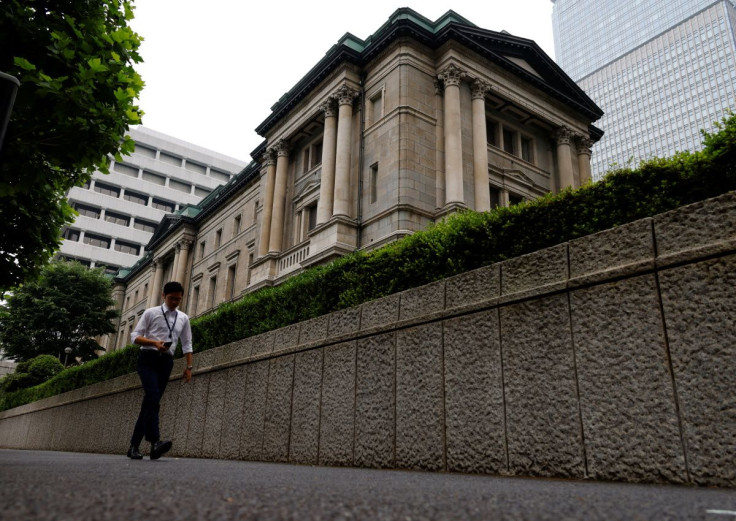BOJ Retains Easy Policy, Defies Global Tightening Tide

The Bank of Japan projected inflation to exceed its target this year in fresh forecasts issued on Thursday, but maintained ultra-low interest rates and signalled its resolve to remain an outlier in a wave of global central bank policy tightening.
The decision came hours before that of the European Central Bank, which will consider a bigger-than-expected 50 basis point rate increase to tame soaring inflation.
While rising fuel and commodity costs have pushed Japan's inflation above its 2% target, the BOJ has repeatedly said it was in no rush to withdraw stimulus as slowing global growth cloud the outlook for the still-weak economy.
"Uncertainty surrounding Japan's economy is very high. We must be vigilant to financial and currency market moves, as well as their impact on the economy and prices," the BOJ said in a quarterly report issued after the decision.
Underscoring its alarm over recent sharp yen falls, the BOJ included in the report a rare warning that "sharp volatility" in the currency market was among risks to Japan's economy.
As widely expected, the BOJ maintained its -0.1% target for short-term rates and that of 10-year bond yields around 0%.
SWIMMING AGAINST TIDE
In fresh quarterly projections, the board raised to 2.3% from 1.9% its core consumer inflation for the current fiscal year ending in March 2023. It also raised its inflation forecast for the following year to 1.4% from 1.1%.
But the BOJ cut this fiscal year's growth forecast to 2.4% from 2.9% and warned of the potential blow from lingering supply constraints, rising commodity prices and the pandemic.
"Inflation isn't really heightening much in Japan (compared to other countries)," said Hiroaki Muto, an economist at Sumitomo Life Insurance.
"There's also a lack of clear evidence a weak yen is hurting the economy. The BOJ has little incentive to tweak policy."
Nodding to a wave of companies raising prices, however, the BOJ said inflation expectations were heightening and likely to rise further including through wages hikes.
In a statement released after the decision, the BOJ left unchanged a pledge to ramp up stimulus if needed and to keep interest rates at "current or lower" levels to support growth.
Swimming against the global tide of monetary tightening, however, is not without cost. The policy divergence has pushed the Japanese yen to 24-year lows, hurting households and retailers by boosting already surging import costs.
That impact was highlighted in data out earlier Thursday, which showed Japan ran a trade deficit for the 11th straight month in June as imports jumped 46.1% year-on-year, due to the weaker yen.
Recent BOJ data showed the central bank was forced to gobble up a record 16 trillion yen ($116 billion) worth of Japanese government bonds (JGB) in June to defend its 0.25% cap for the 10-year yield.
The aggressive buying pushed the BOJ's ownership of the bond market past 50%, backtracking on past efforts to gradually taper its huge balance sheet and causing strain in the futures market.
($1 = 138.0000 yen)
© Copyright Thomson Reuters 2024. All rights reserved.





















